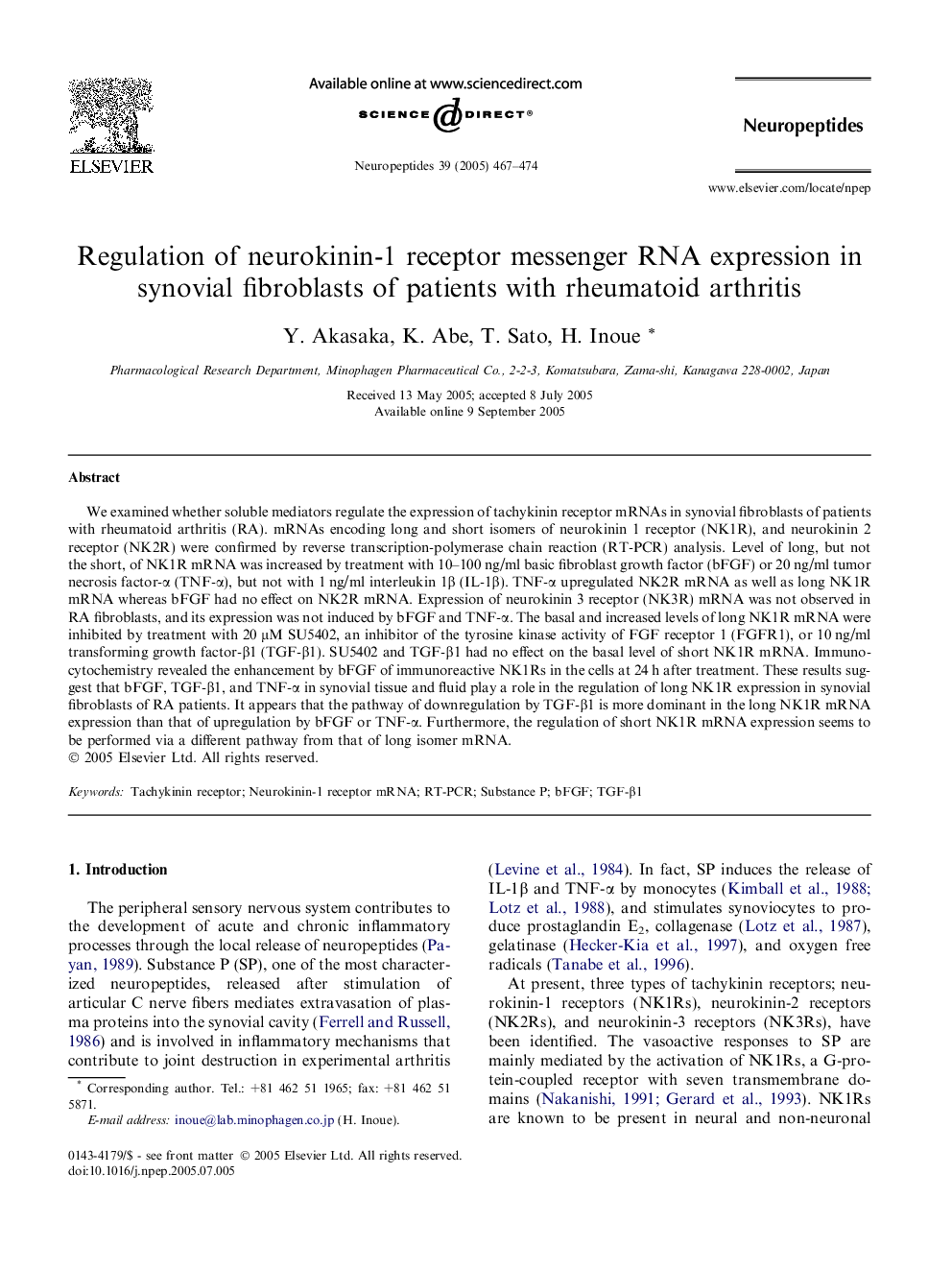| Article ID | Journal | Published Year | Pages | File Type |
|---|---|---|---|---|
| 9118744 | Neuropeptides | 2005 | 8 Pages |
Abstract
We examined whether soluble mediators regulate the expression of tachykinin receptor mRNAs in synovial fibroblasts of patients with rheumatoid arthritis (RA). mRNAs encoding long and short isomers of neurokinin 1 receptor (NK1R), and neurokinin 2 receptor (NK2R) were confirmed by reverse transcription-polymerase chain reaction (RT-PCR) analysis. Level of long, but not the short, of NK1R mRNA was increased by treatment with 10-100 ng/ml basic fibroblast growth factor (bFGF) or 20 ng/ml tumor necrosis factor-α (TNF-α), but not with 1 ng/ml interleukin 1β (IL-1β). TNF-α upregulated NK2R mRNA as well as long NK1R mRNA whereas bFGF had no effect on NK2R mRNA. Expression of neurokinin 3 receptor (NK3R) mRNA was not observed in RA fibroblasts, and its expression was not induced by bFGF and TNF-α. The basal and increased levels of long NK1R mRNA were inhibited by treatment with 20 μM SU5402, an inhibitor of the tyrosine kinase activity of FGF receptor 1 (FGFR1), or 10 ng/ml transforming growth factor-β1 (TGF-β1). SU5402 and TGF-β1 had no effect on the basal level of short NK1R mRNA. Immunocytochemistry revealed the enhancement by bFGF of immunoreactive NK1Rs in the cells at 24 h after treatment. These results suggest that bFGF, TGF-β1, and TNF-α in synovial tissue and fluid play a role in the regulation of long NK1R expression in synovial fibroblasts of RA patients. It appears that the pathway of downregulation by TGF-β1 is more dominant in the long NK1R mRNA expression than that of upregulation by bFGF or TNF-α. Furthermore, the regulation of short NK1R mRNA expression seems to be performed via a different pathway from that of long isomer mRNA.
Related Topics
Life Sciences
Biochemistry, Genetics and Molecular Biology
Endocrinology
Authors
Y. Akasaka, K. Abe, T. Sato, H. Inoue,
